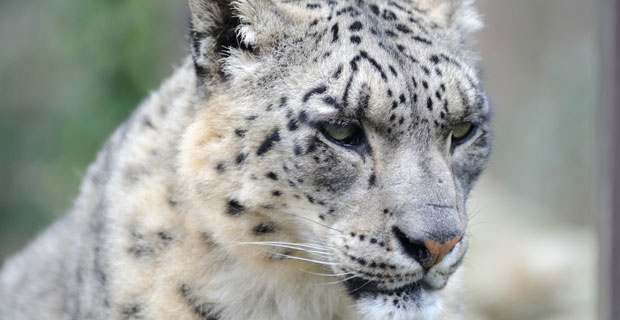Advertisement
Wildlife Wednesday: Snow Leopard
This Wildlife Wednesday, learn about the majestic and endangered snow leopard of Central Asia, referred to as “mountain ghosts” by locals. Habitat: the mountains of Central Asia Snow leopard trivia Snow leopards are well equipped for the cold. Their wide, furry feet act as nature’s snowshoes; their coat camouflages them perfectly to blend into the … Continued

This Wildlife Wednesday, learn about the majestic and endangered snow leopard of Central Asia, referred to as “mountain ghosts” by locals.
Habitat: the mountains of Central Asia
Snow leopard trivia
- Snow leopards are well equipped for the cold. Their wide, furry feet act as nature’s snowshoes; their coat camouflages them perfectly to blend into the snow and rock cliffs; and they have thick, warm fur to keep them warm.
- Their tail provides excellent balance on the steep cliffs.
- They can weigh up to 120 pounds and can jump up to 50 feet, allowing them to surprise their prey, which includes everything from sheep, ibex, small animals, birds, and even livestock (see next section for more details).
- Snow leopards are the one wild cat that cannot roar.
Why they’re threatened and how to help
The snow leopard is listed as endangered, and estimates number wild snow leopards at only 4,000 to 6,500.
Some communities in Nepal see them as a threat to their livestock, as they prey on domestic animals essential to the Nepalese people, such as yak. This puts the snow leopard population in ongoing danger, as revenge killings by herders are not uncommon. According to the World Wildlife Fund (WWF), efforts such as community livestock insurance programs are in place to help protect these endangered big cats in Nepal. These efforts have been very successful, and the number of snow leopards are slowly rising.
Other ongoing threats to the snow leopard are habitat loss, dwindling food supply, and illegal trade for their fur and organs.
Check out the WWF for more information, as well as how to help. And check out our website for more Wildlife Wednesday posts.





